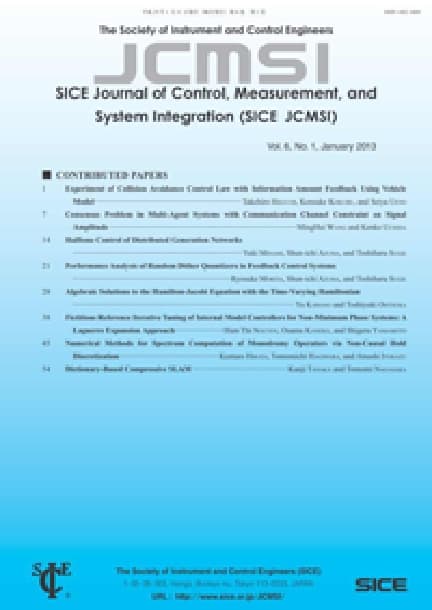On Construction of an H∞ Preview Output Feedback Law
Kotaro HASHIKURA, Akira KOJIMA, Yoshito OHTA
pp. 167-176
DOI:
10.9746/jcmsi.6.167Abstract
In preview control problems, efficient use of future reference or disturbance signals is investigated to improve control performances. This paper addresses a class of H∞ preview control problems where information on the state variables and exogenous disturbance is only partially available, and reveals the clear preview-feedforward structure of the controller. To that end, the J-spectral factorization technique in the literatures is reviewed with explicit consideration of the PDE realization of the time-delay element, and a state-space interpretation is given by proposing new state-variable transformations. The explicit solution of the control-type operator Riccati equation is also constructed by the state-variable transformations.









